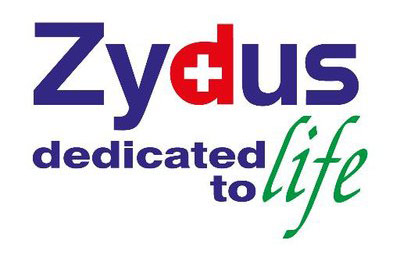Zydus’ Desidustat shows efficacy and safety in treating Hypoxia in hospitalized Covid-19 patients in Mexico
Zydus’ Desidustat shows efficacy and safety in treating Hypoxia in hospitalized Covid-19 patients in Mexico Novel mechanism of targeting ‘hypoxia’ through HIF-PH inhibitor was studied for the first time in Hospitalised Covid-19 Patients in Mexico

Zydus’ Desidustat shows efficacy and safety in treating Hypoxia in hospitalized Covid-19 patients in Mexico
- Novel mechanism of targeting ‘hypoxia’ through HIF-PH inhibitor was studied for the first time in Hospitalised Covid-19 Patients in Mexico
- Phase (2) b Trial data shows the potential of Desidustat in helping prevent acute respiratory distress syndrome (ARDS)
- None of the hospitalised patients required mechanical ventilator in the Desidustat arm, while 25% patients on the standard of care arm required mechanical ventilator
- Study trial indicates that the use of Desidustat for 14 days reduced CRP between baseline and day 14 among hospitalised patients with COVID-19
- Level of IL-6 was stabilised in the Desidustat arm, while it increased in the Standard of Care arm.
Ahmedabad, India, January 25, 2021
Zydus, a leading discovery based global pharmaceutical company today announced that it has received positive results from Phase 2(b) studies of Desidustat in COVID-19 patients [ClinicalTrials.gov Identifier: NCT04463602] conducted at Mexico.
Patients infected with COVID-19 have been reported to display signs of ‘Hypoxia’ leading to organ failure and death despite the use of antivirals, anti-inflammatory drugs or ventilators. The attack with the novel coronavirus pneumonia (COVID-19) will cause less and less haemoglobin that can carry oxygen and carbon dioxide. The lung cells have been reported to develop extremely intense poisoning and inflammation, shortness of breath sets in and this can lead to acute respiratory distress syndrome (ARDS). Patients with ARDS may require mechanical ventilator support to help circulate oxygen in the body.
Speaking on the development, Pankaj R. Patel, Chairman, Zydus Group said, “We are excited to report for the first time, this encouraging data of our novel HIF-PH inhibitor, Desidustat, showing the potential to help prevent acute respiratory distress syndrome (ARDS) in COVID-19 patients. ARDS is associated with high mortality rate and Zydus remains committed to further develop this novel therapy for patients suffering from ARDS.”
The Phase 2(b) results of this study revealed that Desidustat treatment led to increased red blood cell production and improved oxygen delivery to tissues. None of the hospitalised patients required mechanical ventilator in the Desidustat arm, while 25% of COVID-19 patients on the standard of care arm required mechanical ventilation. Further the level of CRP and IL-6 are reported to predict respiratory failure in hospitalized symptomatic COVID-19 patients. It has been reported that the risk of respiratory failure for patients with IL-6 levels of > 80 pg/ml was 22 times higher compared to patients with lower IL-6 levels (Refer: Tobias et al, Elevated levels of IL-6 and CRP predict the need for mechanical ventilation in COVID-19, Journal of Allergy and Clinical Immunology, VOLUME 146, ISSUE 1, P128-136.E4, JULY 01, 2020 doi: 10.1016/j.jaci.2020.05.008.). In this Phase 2(b) clinical study, the standard of care reported the mean increase in IL-6, while the Desidustat arm remained stabilised. Detailed reports will be published in a scientific journal.
Zydus had conducted the Phase 2b, Multicenter, Open-label, Randomized,Comparator-Controlled Study to Evaluate the Efficacy and Safety of Desidustat Tablet for the Management of COVID-19 patients. Clinical and regulatory development of Desidustat in COVID-19 was executed in Mexico by Avant Santé Research Center S.A. de C.V., a leading Contract Research Organization (CRO) headquartered in Monterrey, Mexico. [ClinicalTrials.gov Identifier: NCT04463602]
Zydus had initiated two Phase III trials of Desidustat. The DREAM-ND Phase III trial is being conducted in 588 CKD patients not-on-dialysis [ClinicalTrials.gov Identifier: NCT04215120]. The DREAM-D Phase III trial is being conducted in 392 CKD patients on Dialysis [ClinicalTrials.gov Identifier: NCT04012957]. Desidustat is also being studied in Cancer Chemotherapy Induced Anemia [ClinicalTrials.gov Identifier: NCT04667533]. Desidustat had previously met its primary endpoints in the Phase II clinical studies and showed good safety profile. The Phase I trials were earlier completed in Australia.






